Table of Contents (click to expand)
If someone falls overboard from a ship, the best thing to do is to raise a ‘Man overboard!’ alarm and keep track of the victim’s location. The ship can then turn back to get the fallen passenger by using a ‘man overboard rescue turn.’ The victim can try to stay calm and relaxed, and hope for the best.
Falling overboard from a ship in the open sea is one of the worst things that could happen to someone traveling onboard. Why, you ask? Well, mainly because there are a number of dangers involved and the odds of rescue are severely stacked against the victim. It sounds pessimistic, but it’s true. Hopefully, by the end of this article, you’ll understand why.
The Dangers Of Falling Overboard
The Fall
To start with, there’s the fall itself. You might already know that large vessels, such as cruise and naval ships, have their decks well above the surface of the water. This means that the height of the fall will be at least a few dozen meters, if not more.
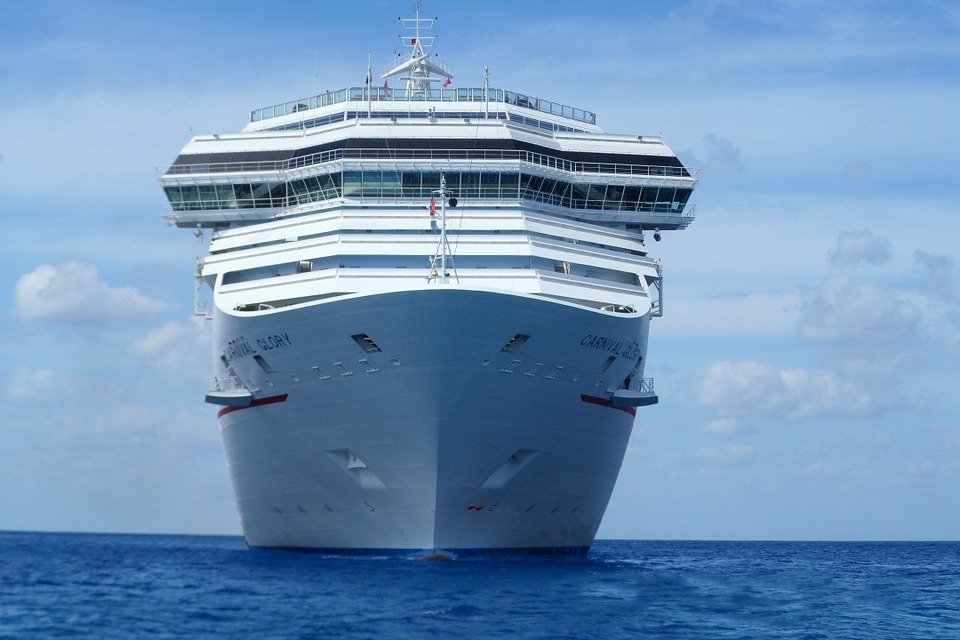
The risk of bodily harm also depends on how you fall, i.e., your body posture while falling. Unless you are purposely jumping overboard (which you shouldn’t!), it’s highly likely that you will be in a pretty bad position, as far as breaking the surface is concerned.
To be more specific, water is essentially an incompressible liquid, which means that falling on water from a reasonable height is not that much different from falling on solid ground. That’s why people (like divers) who purposely jump in water do so… (a) from as low a height as possible and (b) assume a pencil-like posture to efficiently break the surface without injuring themselves.
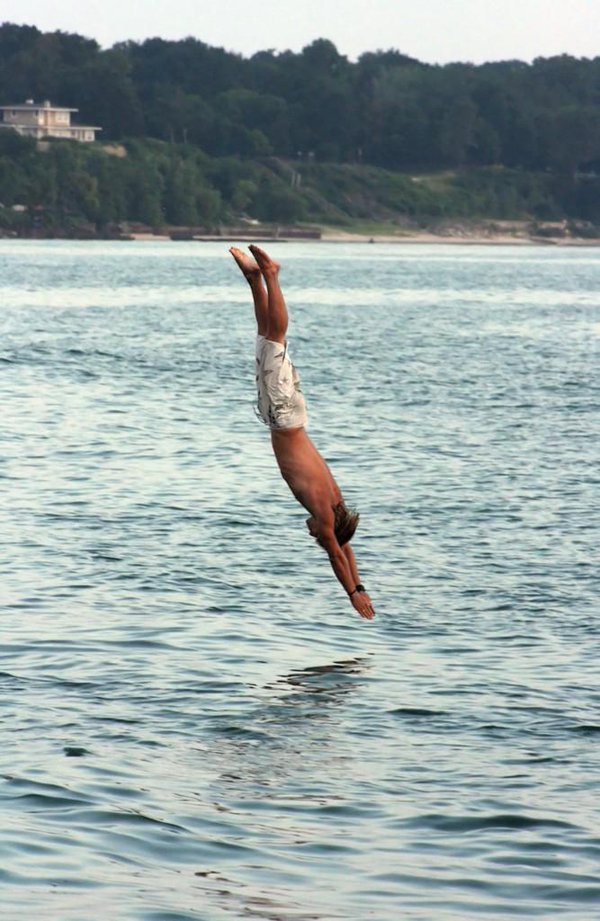
Someone who falls in the water from a great by an accident is, therefore, likely to sustain not-so-minor injuries (broken bones and fractures are a definite possibility).
Cold Shock Response
When the human body suddenly becomes immersed in chilling water (like in the case of falling overboard in the sea), it involuntarily lets out all the air inside it and involuntarily tries to gasp and take in as much air as possible.
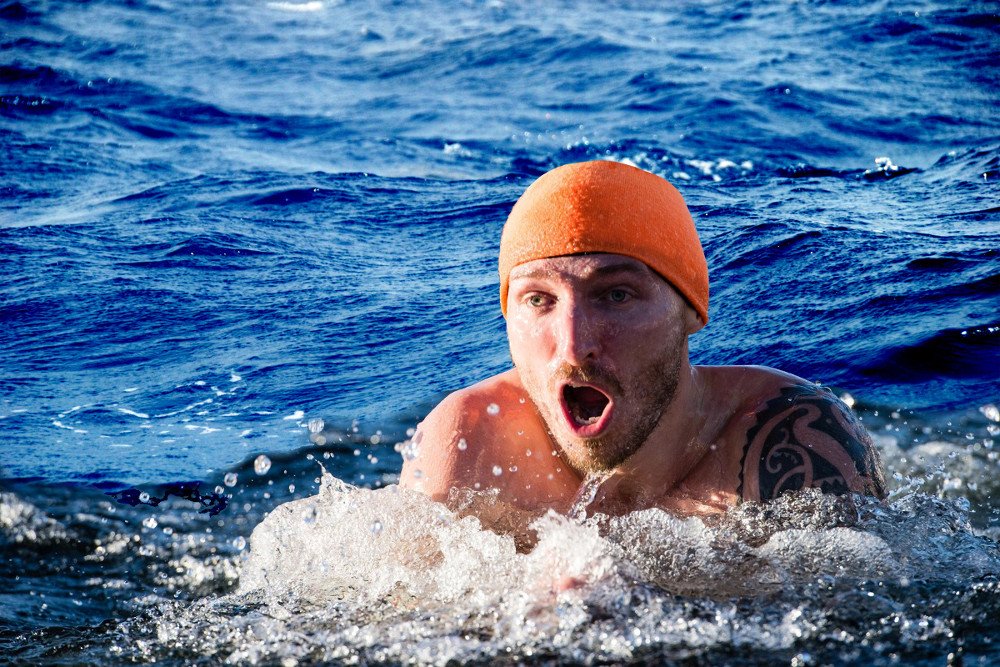
The result of this could cause the victim to involuntarily swallow the surrounding cold saltwater, which could further aggravate the situation if the victim is underwater. In fact, cold shock response is probably the most common cause of death from sudden immersion in very cold water (Source).
Risk Of Being Too Close To The Ship
One of the other risks of falling too close to the ship is being tossed around by the strong currents. If it’s a big ship, you wouldn’t be sucked under or shredded by the propellers, but would probably be thrown away by the turbulent water around the ship’s hull, which could make it more difficult for someone onboard to locate the victim.
Hypothermia
The chances (and also duration) of your survival rely hugely on the temperature of the water into which you fall. Caribbean waters are not that cold, so you’d be okay for a while, but falling into the frigid, icy waters of the Arctic ocean would result in the loss of brain function and death in a matter of minutes due to hypothermia – a condition where the body loses more heat than it absorbs.
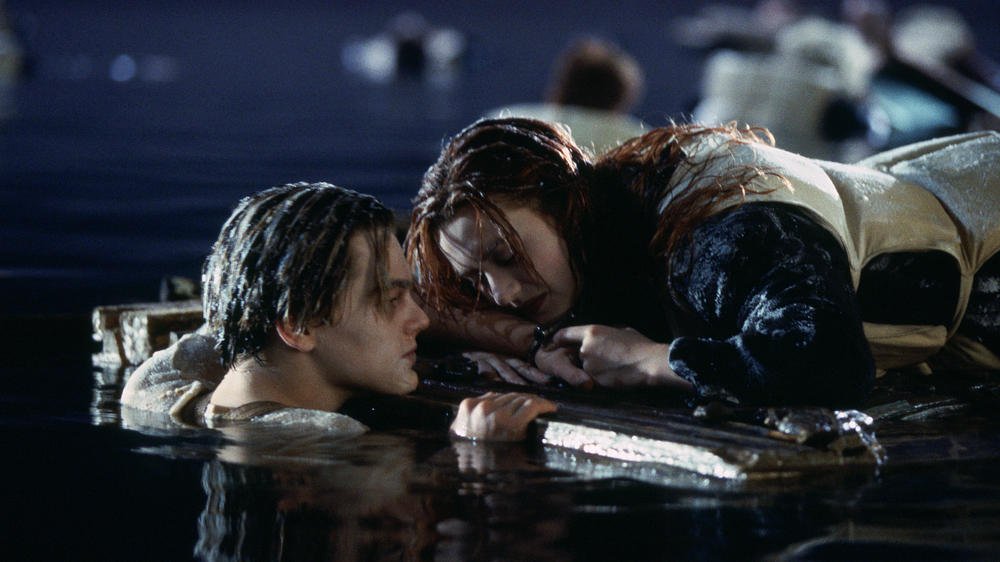
Although you’ll have more time if the water temperature is comparatively higher, that doesn’t mean you can stay afloat in the water forever, because even if the water isn’t that cold, it’s still colder than the core temperature of your body. This is why your body will dissipate heat to the surrounding water (which is at a higher temperature than your body).
Aquatic Creatures
This factor is totally dependent on the fauna biodiversity of the water. The profile of marine creatures in the Arctic, where the water is extremely cold, is quite different from the marine beasts found in the Caribbean.

Although sharks, one of the scariest aquatic creatures known to attack humans, are found in all major oceans of the world, they usually live in regions where the water isn’t too cold. They are also pretty good at locating their prey (through electroreception), and will attack if they sense even small traces of blood in the environment.
The good thing, though, is that most species of sharks (and even other aquatic species) are not aggressive towards humans, and don’t usually attack without provocation. After all, feeding is not the reason sharks typically attack humans.

Also Read: What If You Jumped Out Of An Airplane Into The Sea Without A Parachute?
What Can Be Done To Save The Victim?
The survival of an overboard passenger depends entirely on how quickly someone realizes that they’ve fallen overboard. The best case scenario is when someone on the ship actually sees the victim fall overboard, immediately raises a ‘Man overboard!’ alarm, and then keeps their own eyes fixed on the victim to track them in the water.
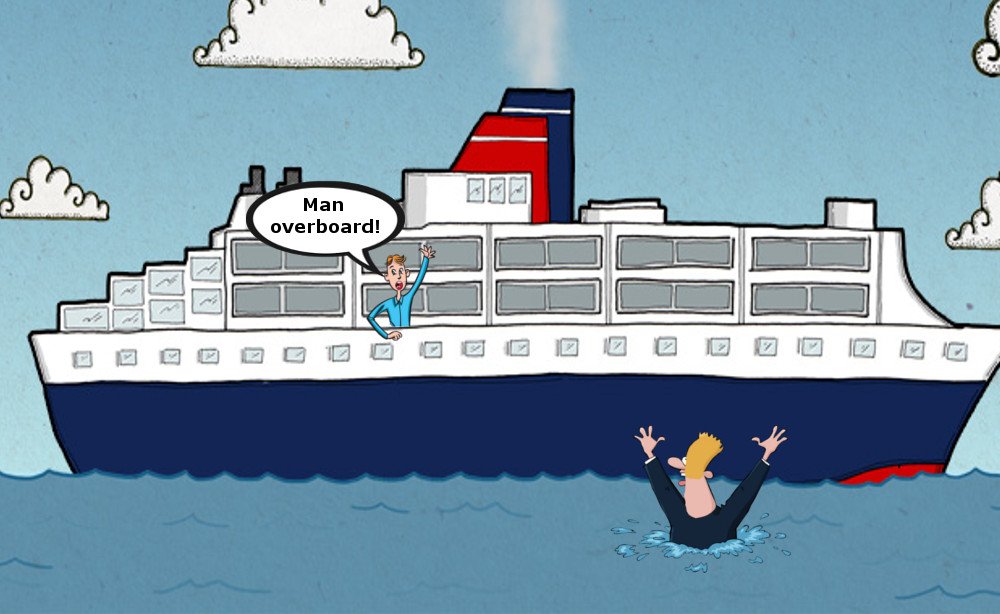
Keeping track of the exact location of the victim is of the utmost importance. The water surface in open seas is rarely calm, so the victim might easily be obscured by rising waves and the uneven surface. Things become even worse at night, as all one can see at that point is nothing but pitch-black water, unless the victim is wearing something fluorescent.

Upon locating the exact position of the toppled victim, people on the ship are supposed to throw a life ring or anything at all that floats near the person so that the victim has something to hold on to until they’re fished out. Also, all of this “stuff” in the water helps mark their exact location.
After the confirmation of a man overboard alarm, the ship can turn back to get the fallen passenger by using a ‘man overboard rescue turn’ – a sailing maneuver usually implemented instantly following a MOB confirmation.

Large ships, such as aircraft carriers, cannot instantly maneuver a U-turn and fish out the floating victim. Therefore, instead of turning around a gigantic metallic object, a smaller manned boat (known as the MOB boat) can be launched to rescue the victim.
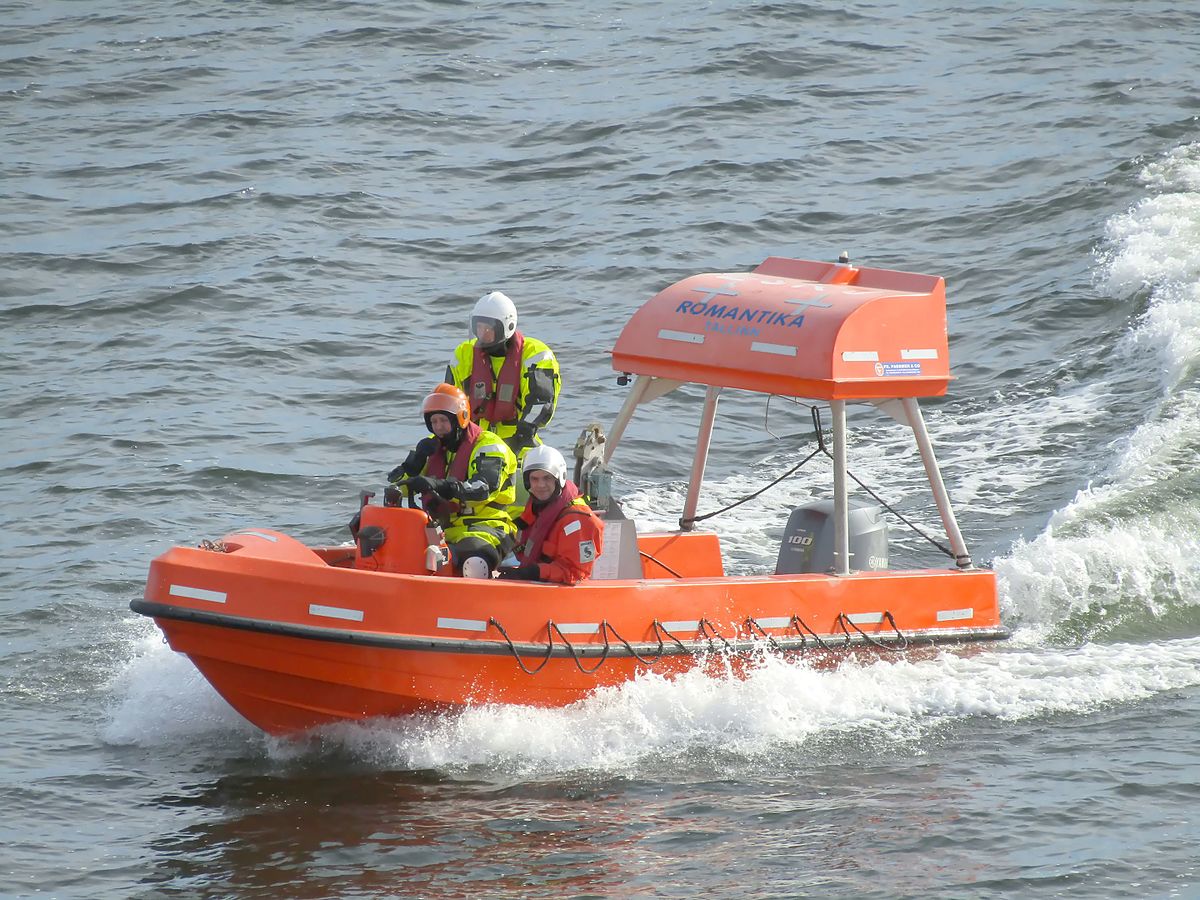
What Can The Victim Do?
The best and probably only thing you can do to avoid falling overboard is to stay away from the edges and railings on the upper decks of a ship, particularly when no one’s around. Because once you land in the water, you can’t do much, apart from waving your arms and calling for help.
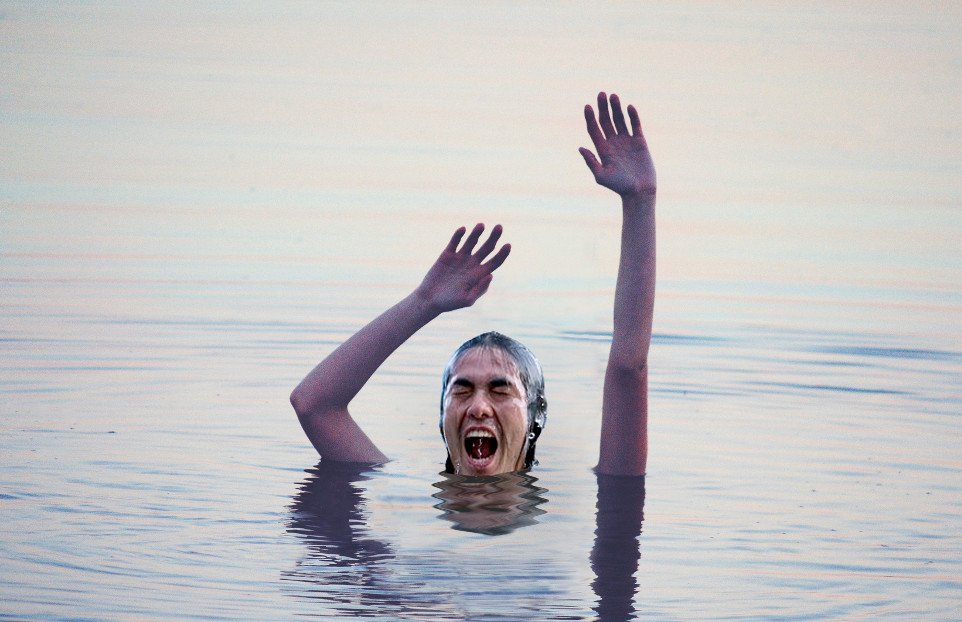
What you can do is stay calm and relaxed, which can make all the difference between life and death in such situations.
Most importantly, try and stay positive. Be hopeful. Remember that people have fallen overboard in the past and have been rescued successfully.

In fact, there are quite a few survival stories of people who have fallen overboard a ship. Of those I know about, my personal favorite is of a man who fell off a tour boat in the Indian Ocean and stayed in the water for 29 hours straight, surviving through dehydration, storms, sharks and hallucinations of the Virgin Mary!
How well do you understand the article above!

